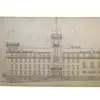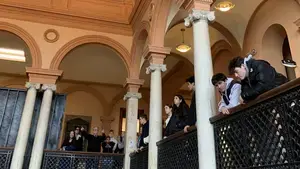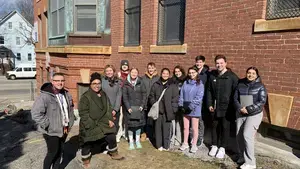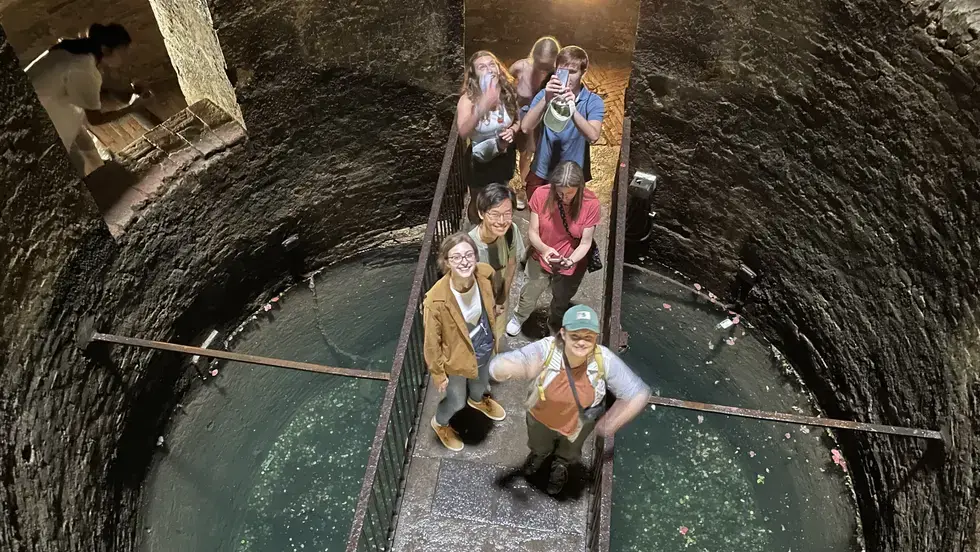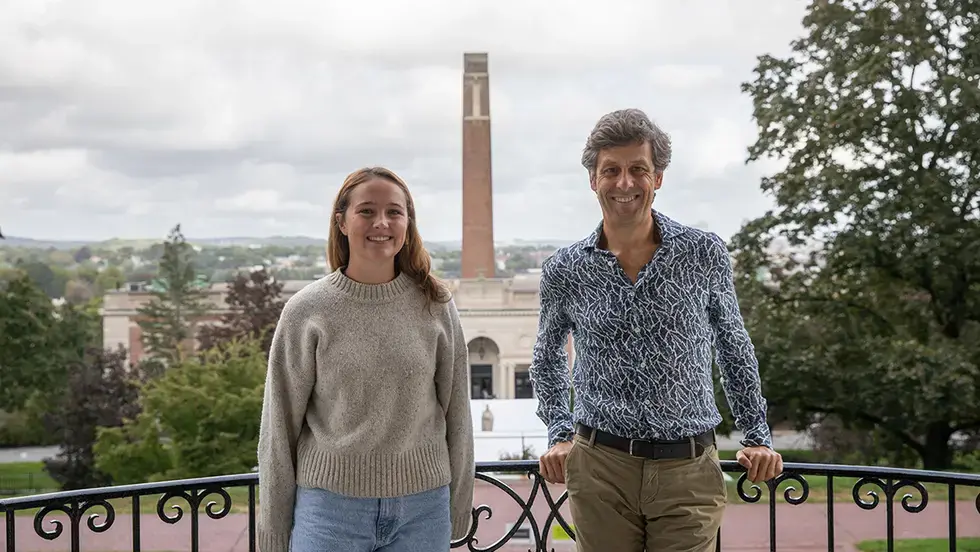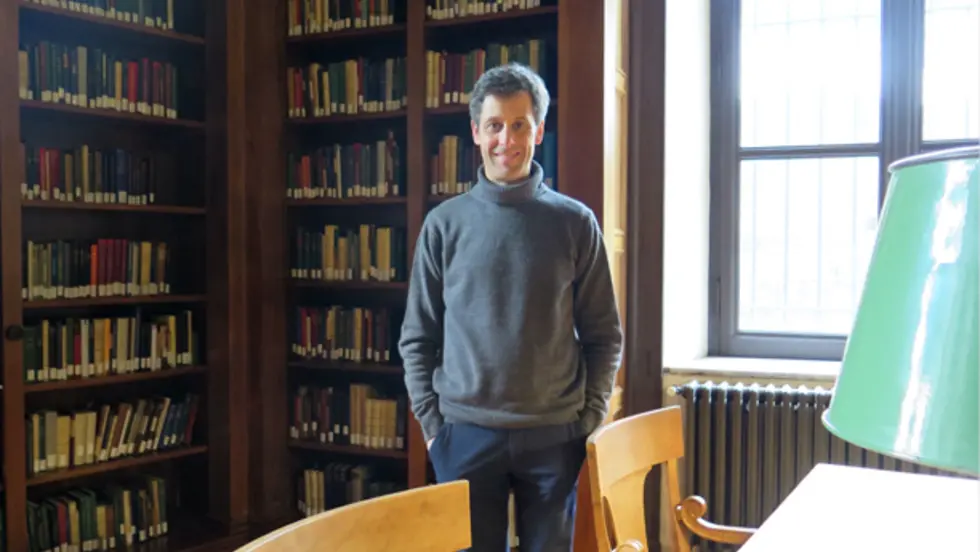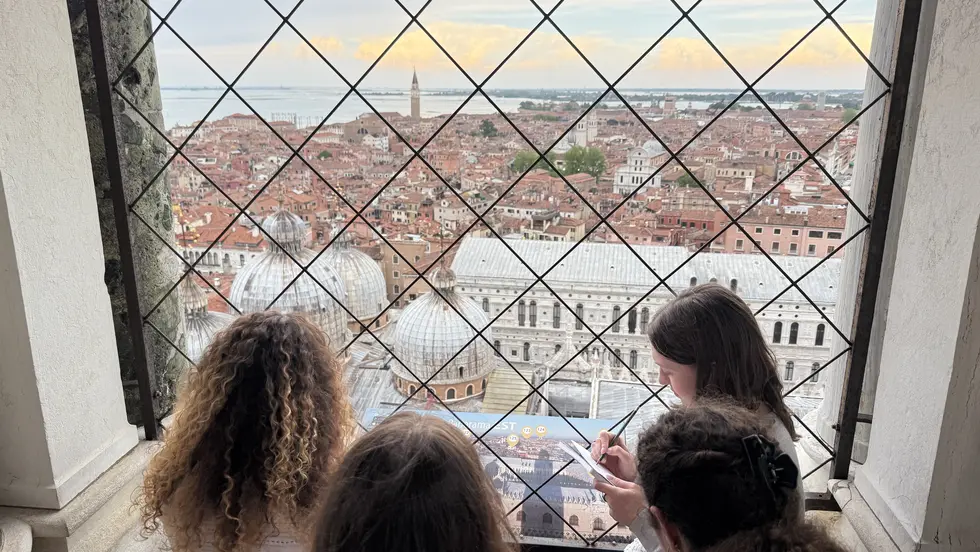
Architectural Studies
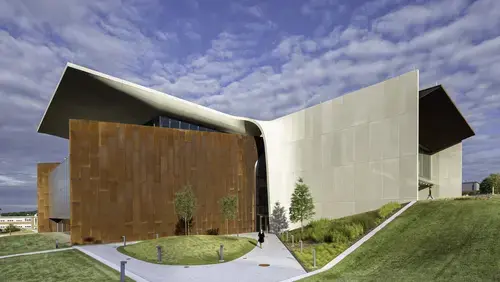
Areas of Study
- Architectural History and Theory
- Design and Representation
- Urbanism and the Built Environment
- Cross-Cultural Architecture
- Environmental and Sustainable Design
Requirements
- Visual Arts History (5 Courses)
- VAHI 111
- VAHI 112
- 3 VAHI Electives
- Studio Art (2 Courses)
- 3D Fundamentals
- Elective
- Environmental Studies (1 course required, max of 2)
- Additional course related to the environment in one of the following areas (1 course required, max of 4)
- Environmental Studies
- Science / Math
- Sociology/Anthropology
- Political Science
- Economics
- Psychology
- or other courses as approved by advisors
- Senior Capstone (1 course)
- Visual Arts History (3 Courses)
- VAHI 111
- VAHI 112
- 1 VAHI Upper-Level Elective
- Studio Art (1 course)
- 3D Fundamentals
- Additional courses related to the built environment (2 courses)
- Environmental Studies
- Science / Math
- Sociology/Anthropology
- Political Science
- Economics
- Psychology
- Visual Arts History or Visual Arts Studio
- or other courses as approved by advisors
Meet Your Department Chair

Opportunities
Visiting Artists and Excursions
The Department of Visual Arts sponsors many arts enrichment programs. Every semester we host numerous visiting scholars and practitioners addressing a broad array of topics related to both historic and contemporary art and architecture. Most courses in the department make frequent use of our major local art institution, the Worcester Art Museum. In addition, the department organizes regular field trips to major museums, galleries and sites across the region, including not only Boston but also New York, New Haven and Hartford.
Community Engagement
Our students engage the campus and surrounding community by presenting personal and collaborative art exhibits, and by providing tours of local museums and special exhibitions. We also encourage our students to pursue internships in local museums, galleries, preservation agencies, and architecture firms. In addition, some of our classes offer community-based learning experiences, encouraging students to engage with the history and people of Worcester in new and meaningful ways.
Study Abroad
Our students have many opportunities for study abroad programs. Many of our majors have gained valuable new insights by taking studio courses and courses in the history of art and architecture at Siena Art Institute and at Temple University Rome. The Maymester program also offers students intensive four-week courses abroad taught by our faculty. Recent Maymesters taught by Visual Arts faculty include a course on geology and architecture in Rome, and a course on art, architecture, and environmental studies in Venice.
Research
Interested students can apply for summer research opportunities in both the history of art and studio. Our students have also worked with faculty on research projects in coordination with the J.D. Power Center for Liberal Arts in the World.
